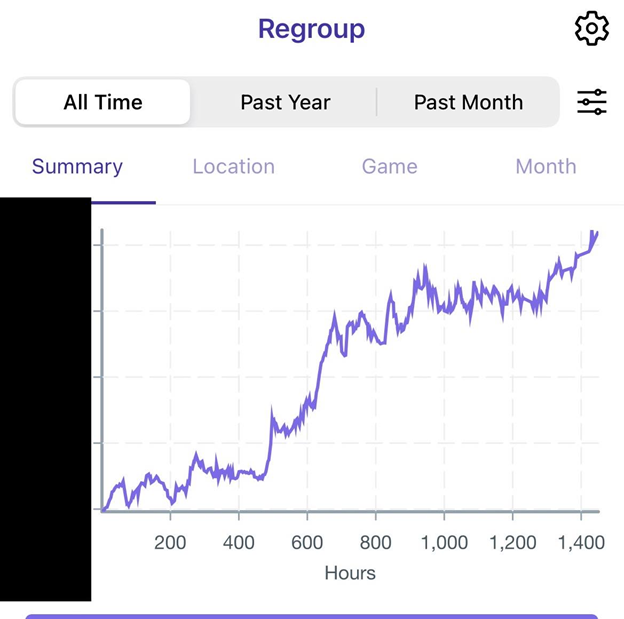Earlier this week, I bought a brand-new car for the first time.
I used tricks that I’ve learned as an entrepreneur, and the negotiation was rather fun.
Join me for a step-by-step replay of how it went down.
Step #1: Do research beforehand
Weeks in advance, we decide the exact make and model we want.
Next, we start by looking at the used market.
We find a 2-year old model with 20k miles that has the core features we want. The price is $18k. That’s our next best alternative to buying new.
The MSRP of the 2020 model is $27k. And given that 2020 is coming to a close, we should be able to get a decent deal.
Step #2: Kick off the new car purchase process
We start on Truecar, which sends our inquiry to half a dozen local dealers.
Within hours, messages begin to roll in.
Several dealers call and leave voicemails, or email asking us to call them. We ignore everyone’s request to hop on the phone—it’s not a good use of our time at this stage.
2 dealers give us offers upfront.
One guy quotes $24k, the other – $21k. This is for the exact same car.
We ask V, who has quoted $21k, a few basic questions.

That email takes us 3 minutes to write, and it prompts V to knock $200+ off of his original price. Great return on effort.

V teaches us something interesting—that nothing in life is free. If we take advantage of 0% financing, we will be charged a higher base price.
Step #3: Instigate a price war
With V’s offer in hand, we go back to everyone else tell them explicitly that $20,733 is the price to beat.
Several dealers, such as M below, ask to see a written offer. This seems a bit odd.
So at first we play coy – we don’t want to let anyone know who else we are talking to.

Note the 2 things we do in this short email to try to extract a superior offer from M:
- Without outright rejecting M’s request to see the other dealer’s written offer, we tell M that we won’t have the official paperwork until later—which is 100% true.
- We use the Scarcity Principle – “No guarantees we will come back to you if you wait”.
We are in full control here.
Later that day, M comes back to us with a quote that is $100 lower. Terrific.
So we go back and tell V the news.

By this point, we’ve done more research, and apparently, it’s common for dealers to ask potential buyers to share quotes from their competitors.
We figure that the benefit now outweighs the potential cost, so we share M’s quote with V.
The result is positive.
Within the hour, V agrees to beat M’s quote by $100. We are at $20,500 now.
Step #4: Enter the final stage
The negotiation is moving quickly.
Despite our success, we don’t think it’s sustainable to continue with this strategy of getting the dealers to undercut one another by $100.
So we change tactics and fast forward to the finish line.
We send the below to both V and M.

We invest decent effort into this email. Note the key components:
- We start with a compliment. This is a practice that Warren Buffett has embraced to great success. There are 2 great benefits of this tactic: First, our statement is absolutely true – we have enjoyed negotiating with V and M. Second, compliments cost us nothing.
- We tell each dealer exactly what we are doing – honesty is good. We hint at an endless cycle of continuous price decreases.
- But we show them a path out of that vicious cycle. We frame it using the word “respect”, and we put our word on the line.
- We technically give them 2 paths out – which vary depending on the amount of credit card points they allow us to earn.
- We give them a timeline – the equivalent of 2 days to reach a deal – which should be more than enough.
- And as a nice carrot – for the first time – we offer to chat on the phone.
Step #5 Finalize the purchase
After a quick call and a couple of texts, M meets our $20,000. We can only pay $5,000 upfront with our credit card. We must finance the remainder at a 6% rate, but we can pay off the loan in full after 3 months.
We do some quick math – all fees included, the interest for 3 months will cost us an extra $250. So $20,250 is the real total for M’s offer.
Next, V emails us with their best and final offer at $20,388. There is no loan repayment complication, and V also limits our credit card payment to $5,000 max.
With no better offers forthcoming – we are on the cusp of taking M’s deal as it is $138 cheaper, but we attempt one tweak.
We have never refinanced a loan before. So to avoid that hassle – we volunteer to pay $20,250 straight up.
We can probably save another $50-100 if we make any kind of effort. But it’s Christmas Eve and we feel generous.
M agrees to $20,250 straight up and the deal is done!
Step #6: Negotiation takeaways
First – the 80/20 rule very much held true.
The first 20% of effort got me 80% of the way here with the $20,733 offer.
Everything I did after that to negotiate the price down to $20,250 took an extra 2 hours.
Those 2 hours saved me nearly $500. For me personally, it was worth it, but to each his own.
Ultimately, I got 25% off MSRP. Not a bad outcome, but 5 important caveats:
- I purchased a 2020 model at year end when the 2021 model was already out
- I purchased a sedan. Not only are sedans losing ground to SUVs & crossovers in the USA, but this model is especially unpopular – however, it has everything I want
- I did not finance ($5,000 on the credit card doesn’t count)
- I later learn that M has only been on the job for 3 months. (This may have led to a lower price, but it also created a couple of minor hiccups later on—unrelated to the negotiation. So I’m not sure if his inexperience actually benefitted me overall.)
- Buying a car is a classic one-off negotiation. Chances are, I will never again interact with any of these dealers. In most business negotiation scenarios, the long-term relationship matters, and I act very differently
The translatable negotiating lessons are:
- #1 Control the process & timing
- I used a google voice number and the Gmail “+” sign trick to filter my inbound messages
- In the beginning, I used the “Delay send” feature in Gmail to stagger my responses and purposefully slow down the process
- I ignored all calls and texts, and I refused to hop on the phone until late in the game
- I rejected / ignored all efforts of dealers to get me to visit in person until the deal was complete
- After one price quote, the dealer told me that he “cannot guarantee” that the car would remain available given how busy they were. I ignored him. Never should one feel urgency to drop $20k+ on a rapidly depreciating asset
- #2 Control the flow of information
- I concisely told each dealer everything they needed to know and nothing more
- For example, I never told anyone why I was buying the car (It was actually on behalf of my parents)
- I didn’t share bid details until I had 2 competing offers
- #3 Be aggressive but respectful
- Not once did I lie or waste anyone’s time
- I got an explicit best and final offer from one dealer
- I left a little bit of $ on the table
What I would do differently:
There were several dealers who kept trying to get me on the phone but never gave me indicative pricing.
During the endgame, I called a couple of these guys to increase the chances of getting the lowest possible offer. It didn’t hurt, but it turned out to be a waste of time. One them didn’t even have the vehicle in stock.
Overall, negotiating this purchase was a fun learning experience for me. And I hope you’ve found my recap helpful.
What would you have done differently? Send me an email and let me know! yz@yishizuo.com



